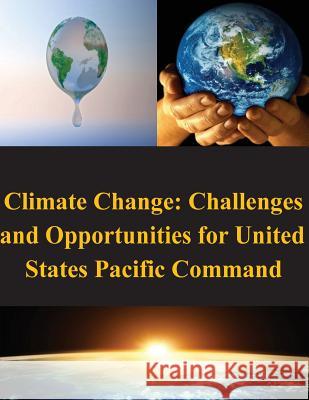Climate Change: Challenges and Opportunities for United States Pacific Command » książka
Climate Change: Challenges and Opportunities for United States Pacific Command
ISBN-13: 9781502972477 / Angielski / Miękka / 2014 / 34 str.
While scientific debate continues over the degree to which carbon emissions derived from human activity drive climate change, discernable trends toward change in the world's climate are clear. These changes have the potential to accelerate instability, likely providing the tipping point for humanitarian disasters, major population migrations, conflict over scarce resources, and failed states. With its vast ocean expanses, tremendous amount of coastline and increased competition for resources, the United States Pacific Command (USPACOM) Area of Responsibility (AOR) covers a geographic region where the impacts of climate change will challenge regional stability. Adaptive strategies to prepare for the impacts of climate change offer the potential to drive greater cooperation and meaningful engagement with all states in the region, adversary and ally alike. This paper recommends a shift in strategic focus for USPACOM towards adaptive strategies to deal with climate change events, and thus avoid a reactive posture to the accelerants of instability caused by climate change that threaten regional security. An understanding of these vulnerabilities before they occur is a strategic imperative for USPACOM.
Zawartość książki może nie spełniać oczekiwań – reklamacje nie obejmują treści, która mogła nie być redakcyjnie ani merytorycznie opracowana.











